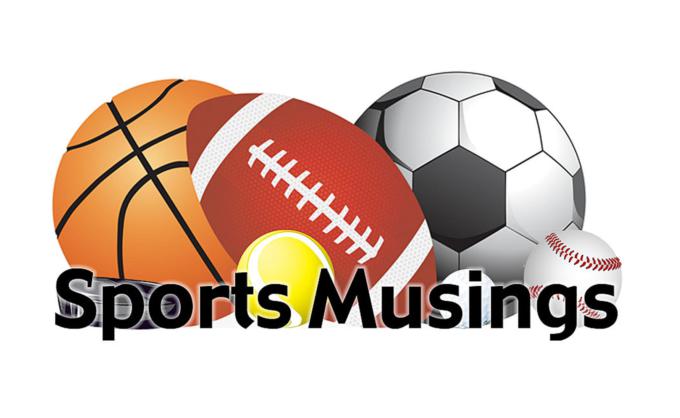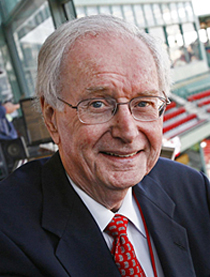
Culture

Flavin
As those of you who are regular readers of this space well know, I was never much of an athlete in my day, so I have no direct knowledge of how it feels to be hit by a bone-crushing tackle by a 280-pound linebacker coming at me at full speed, nor have I suffered the experience of driving in for a layup only to have the ball stuffed down my throat by a seven-foot giant; I have never had to try to duck out of the way of a high, inside 98-mile-an-hour fastball; neither do I know what it feels like to have my pins knocked from under me when I least expect it by a burly hockey defenseman.
However, I have been watching those sports, either in person or on television, for the better part of eight decades, and I feel emboldened, unqualified though I may be, enough to take a stab at answering the following question: Which of the four major sports, football, baseball, basketball, and hockey, is the most difficult to coach on an elite level?
This has arisen as a topic of discussion after Jim Irsay, the owner of the Indianapolis Colts, shook up the football world by appointing Jeff Saturday as the interim head coach of the team in the wake of firing Frank Reich, a football lifer. Saturday, an all-pro center for the Colts during his playing days, had been a popular commentator on ESPN prior to being plucked from the booth by Irsay, but he had no coaching experience beyond the high school level. Coaching high school and coaching in the NFL are not the same thing. One, high school coach, is basically a teaching job; the other, coaching in the NFL, is more like being the general of an army; the men under your command have already been trained. Your job is to deploy them effectively.
In the NBA, it raised some eyebrows when Joe Mazzulla was named interim head coach of the Celtics after Ime Udoka was suspended for a year, which really means that his (Uduka's) career in Boston is over. Mazzulla has only two years of coaching a small college team. At least, he'd been an assistant coach with the Celtics and knows where the locker room is. We're not sure about Saturday.
Basketball and hockey are free-flowing games and are more dependent on the creativity of players than either baseball or football. Coaches in those sports make a difference, but they are seldom THE difference. Bruce Cassidy, who was the Bruins coach for the last six seasons, was said to be unpopular with the players because of his stern methods. He's now coaching the Las Vegas Golden Knights. Jim Montgomery, Cassidy's successor, is more player-friendly. He has the Bruins off to a red-hot start. The only team doing as well are -- you guessed it -- the Las Vegas Golden Knights. Who is to say what style works best?
Larry Bird has a theory that players tend to stop listening to a coach after three years. They tune him out. Bird coached the Indianapolis Pacers for three successful years; then, true to his words, he quit coaching. But Bird's theory doesn't seem to hold for the really great coaches, like Red Auerbach, Pat Riley, and Phil Jackson, who all far outlasted their three-year expiration dates.
Baseball managers have different issues to confront. With the rise in analytics, their power within organizations has diminished while their jobs have become more complex. Managers used to be department heads; now they seem to be little more than job foremen, in charge of men's performance on the field but with little influence over who they are or how they are used. Baseball operations departments have increased exponentially in recent years, staffed by young people with master's degrees in mathematics who have never picked up a bat in their lives. Managers are told to relieve starting pitchers after five or six innings by people who have the statistics to back them up, yet sore arms seem to be as prevalent as ever. Almost no one seems to throw as many as 200 innings anymore. It's tougher than it ever was to manage a big-league team, but it's not nearly as much fun. That goes for managers and spectators, too.
Which brings us back to football -- and General Belichick. Coaching in the NFL is a great job, if you don't mind living like a monk for six months a year. You need to cut off all thoughts of living a normal life for the season. You spend all day every day -- and nights, too -- reviewing tapes of games. You've got to be sure that the nose tackle carries out his assignments, that the cornerbacks do their jobs to the best of their abilities, that the wide receivers do theirs. That's assuming that they are healthy enough to play. If they aren't, you've got to replace them and make sure their substitutes are ready to go. Then there's the pesky media to deal with every day. And, of course, you have to devise a plan to exploit your opponent's weakness and another plan to keep them from exploiting yours. It adds up to about one hundred hours a week, minimum.
Your reward is to be second-guessed by 75,000 people sitting in the stands, plus millions more stretched out on their sofas at home in front of the TV. Coaching football in the National Football League is the toughest job in sports. And I'll bet anything that Frank Reich, who was recently fired by the Indianapolis Colts, wishes he were still doing it.
- Dick Flavin is a New York Times bestselling author; the Boston Red Sox "Poet Laureate" and The Pilot's recently minted Sports' columnist.
Recent articles in the Culture & Events section
-
Tolkien's world, still popular on the big screen, began with faith and wordsCecilia Hadley
-
Scripture Reflection for Dec. 22, 2024, Fourth Sunday of AdventDeacon Greg Kandra
-
Getting adult children to Christmas MassGreg Erlandson
-
The work of redemptionEileen McLaughlin
-
Intern reflectionsEmily Greco and James Kaeser


















